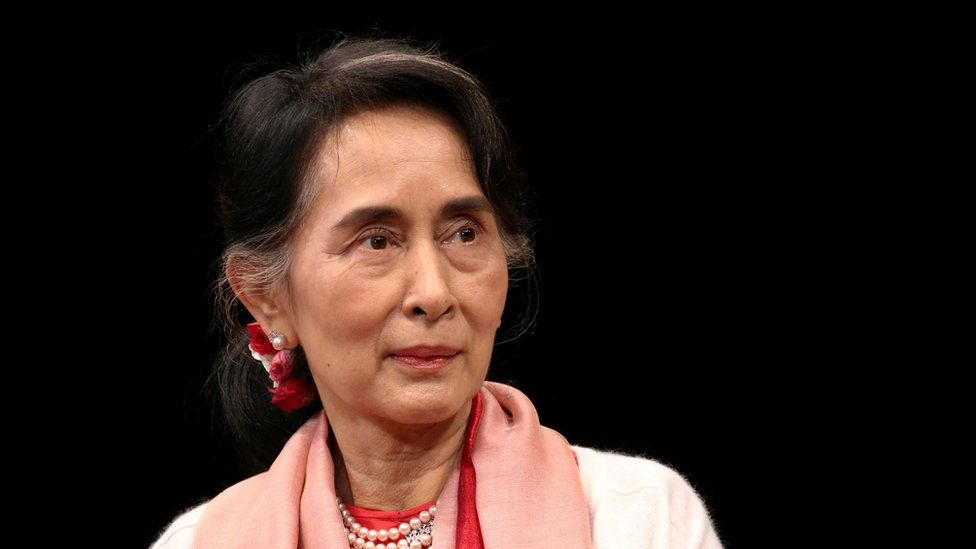Myanmar's military accuses Suu Kyi of taking $600,000 and gold
 image copyrightReuters
image copyrightReutersMyanmar's military rulers have accused the ousted leader Aung San Suu Kyi of illegally accepting $600,000 (£430,000) and gold.
The allegation is the strongest yet levelled by the military since it overthrew Ms Suu Kyi and the country's democratic leadership on 1 February.
No evidence was provided for the charge.
Brigadier General Zaw Min Tun also accused President Win Myint and several cabinet ministers of corruption.
Ms Suu Kyi's party, the National League for Democracy (NLD), won a landslide victory in the polls last year, but the military now claims the election was fraudulent.
Independent international observers have disputed the military's claim - saying no irregularities were observed.
Ms Suu Kyi has been held for the past five weeks in an undisclosed location and faces several charges including causing "fear and alarm", illegally possessing radio equipment, and breaking Covid-19 restrictions.
The illegal payments charge levelled on Thursday was the most serious so far. The value of the gold the military alleges she illegally accepted is roughly £450,000.
Myanmar has been gripped by street protests since the military seized control and detained Ms Suu Kyi. Her image has been held aloft by the protesters.
At least seven more people were killed by security forces on Thursday, taking the total death toll to more than 60. Witnesses said some protesters had been shot in the head.
The UN, US and a host of other countries have condemned the killing of civilians in the crackdown against anti-coup protesters in Myanmar, and called on the authorities to exercise restraint.
The military has dismissed criticism of its actions, instead blaming Ms Suu Kyi for the violence.

Myanmar in profile
- Myanmar, also known as Burma, became independent from Britain in 1948. For much of its modern history it has been under military rule
- Restrictions began loosening from 2010 onwards, leading to free elections in 2015 and the installation of a government led by veteran opposition leader Aung San Suu Kyi the following year
- In 2017, Myanmar's army responded to attacks on police by Rohingya militants with a deadly crackdown, driving more than half a million Rohingya Muslims across the border into Bangladesh in what the UN later called a "textbook example of ethnic cleansing"



No comments